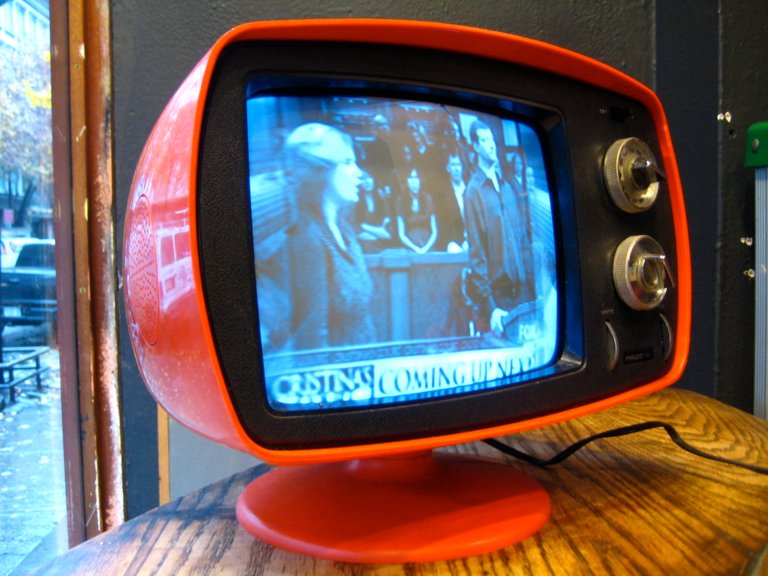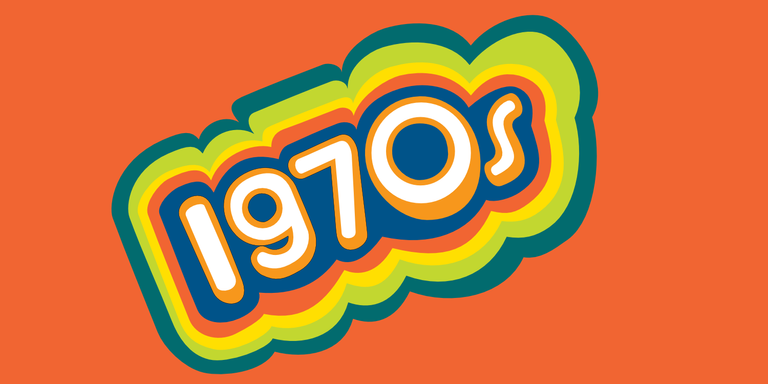
I was born in 1967 and so the colors of the 1970’s are the colors of my early youth. They’re therefore etched in my memory. The colors of the seventies were remarkably intense and cheerful. So cheerful sometimes, that people might even talk about 'screaming colors'.
We’re not only talking here about the popping tangerine. The striking thing about all the colors from that time is that they are intense. They were so powerful that it took all throughout the 80’s to recover with a predominantly colorless, black and white period.
Even now, some 50 years later, it’s still it is still amazing to see how pronounced the colors were back then. The appreciation for the 70's color explosion is slowly returning, though. Time for a look back and a re-evaluation of what has been the most colorful period in history.
Why the colors went wild
The color explosion didn't just come out of the blue (ok, sorry, cheesy pun...) but had various causes. The most important were:
- Continuation of the Flower power youth culture
- Popular music styles like Disco and Glam Rock
- New and cheaper synthetic fabrics for fashion
- Continuing growth in the use of “plastics that looked like plastic”
Youth culture, especially Flower power and hippy culture, had a continuing influence in the seventies. Their use of bright colors of flowers, rainbow colors and sometimes psychedelic colors must be seen as the main influence on the color palette of the seventies.
New popular music styles such as Disco and Glam Rock clearly built on this and made the effect of these colors even stronger by adding colored spotlights, shiny fabrics and glitter.
The British music chart television programme Top of the Pops introduced color broadcastings in November 1969, which no doubt contributed to the rapid and widespread break through of this culture.
Another driving force behind the bright colors was the wide introduction of plastics (that really looked like plastic).
It is good to realize, that at the time the emphasis in society was not on the negative environmental effects of plastic, but on the advantages. Apart from price, one of the main advantages was the freedom of choice for designers to color their designs in any thinkable color. And that's exactly what they did!
Along with plastics came the synthetic fabrics, like polyester and the ubiquitous super shiny Quiana ("pour man's silk") for disco shirts. But also the more natural corduroy (Manchester) was used with many dyes.
Popping colors
Let's start with some facts and figures. What exactly were those colors of the seventies?
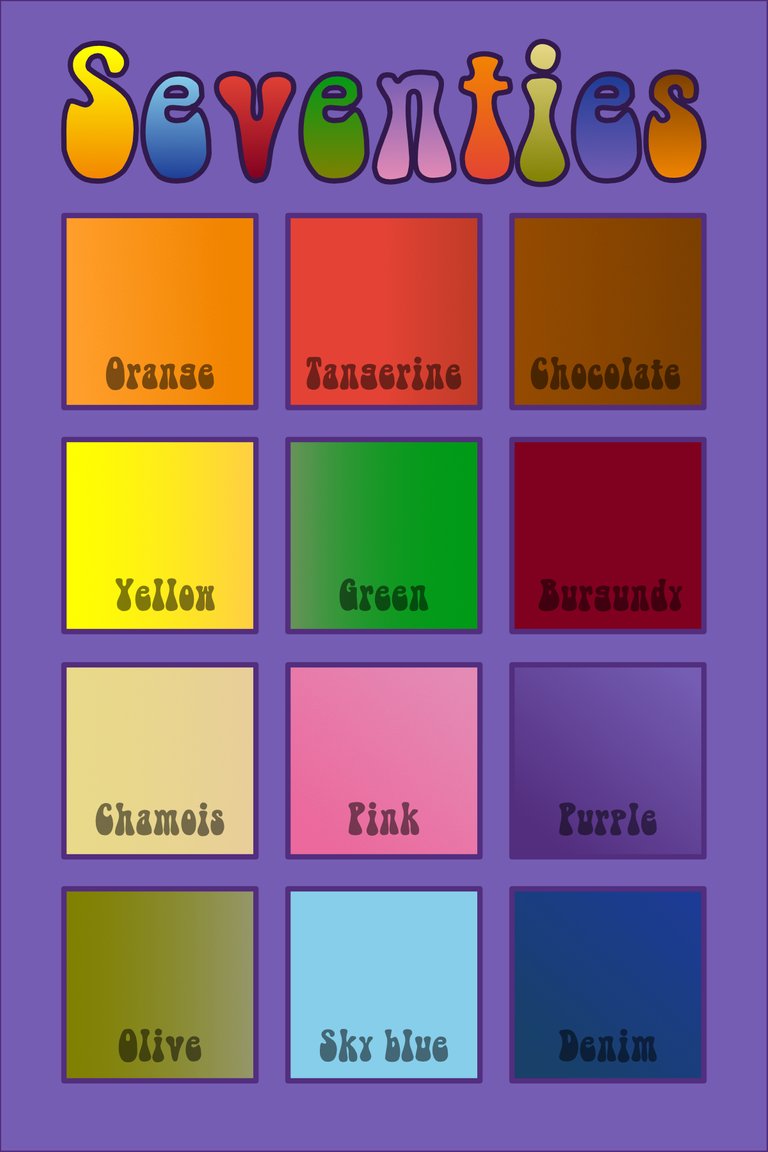
Orange
The most remarkable, epic color by far of that time is bright orange. First of all, it was used in various hues from chrome orange (yellowish orange) and tangerine to (nearly red) vermilion and red lead.
- Chrome orange: # FF9E2B
- Tangerine: # F28500
- Red lead: # BF3B26
- vermilion: # E34234
It also was very popular in all kind of shades, like persimmon (#EC5800), brown (#
964B00), chocolate (#7B3F00) and even burgundy (#800020).
Yellow
Then, it was bright yellow right next to the orange. The main yellow hue would have been like pure yellow (#FFFF00) chrome yellow (#FFA700). Next to this main color, the natural looking and lighter tints and tones of yellow were very popular:
- Buff: # E6AC73
- Harvest gold: # DA9100 - # F3BC65
- Chamois: # E6CC99 # E8CD9A # EFCD9A
- Curry Yellow: # E9DA89
- Mustard: # FFDB58
Green
Second next iconic 70’s color would be green, and I mean green as in Grass Green (#009A17) and Tennis Court (#6C935C).
But it wasn't just the brighter greens that were popular; the more natural-looking greens were also widely present:
- Olive: # 808000
- Avocado: # 95986B - # 568203
Other
To complete the 70s palette, we need to add two more accent colors and a darker, shaded color. You wouldn't immediately recognize these colors as typical of the 1970s, but they were still widely used:
- Sky blue: # 87CEEB
- Babydoll pink: # E48BB5
- Denim blue: # 00416c
Download the color palette of the 1970s
For those of you wanting to create some cool retro seventies designs: I made the color palette available for (free) download on Github.
Examples
Okay, so much for facts and figures: now comes the fun part! Due to our current fashion and contemporary use of color, we can only look with great amazement at what was hip back then.
Popmusic
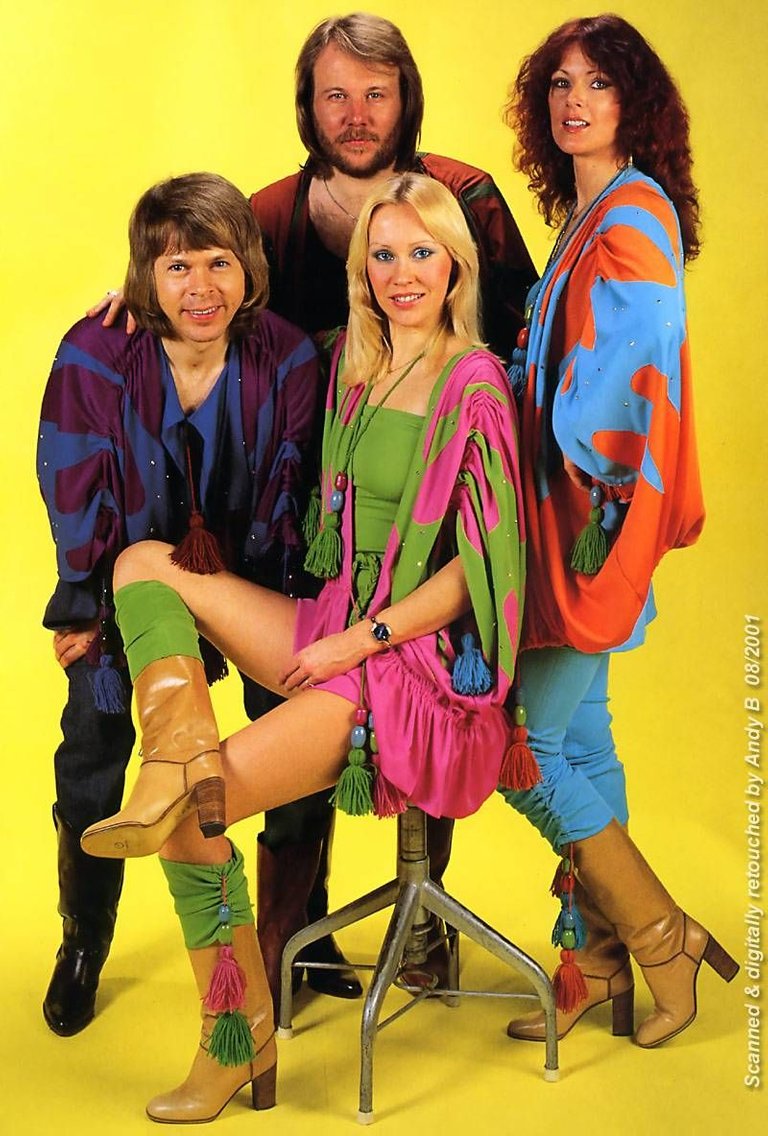
After winning the Euro song contest in 1974, the Swedish popband Abba became icons for the seventies pop culture.
It is a mistake to think that only the poppy bands like Abba used cheerful colors. Also a more "serious" American rock band like Jefferson Startship released an album in 1976 that fully complied with the color theory of the seventies.
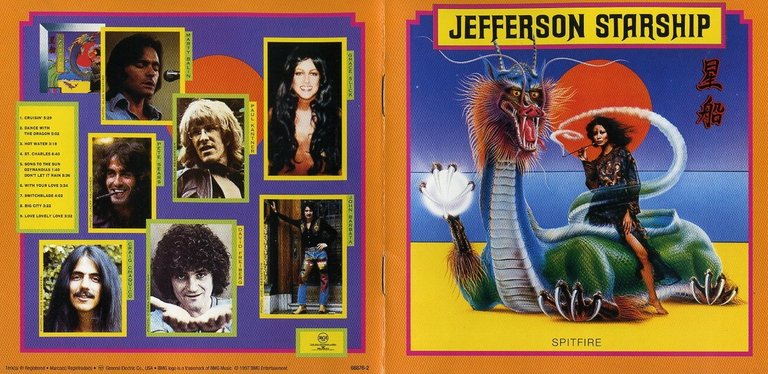
Fashion
Fashion is probably the most amazing expression of 1970s culture. Of course there are the extremely wide legs and pointy collars, which seem ridiculous to us now. But there's also the same palette of colors...
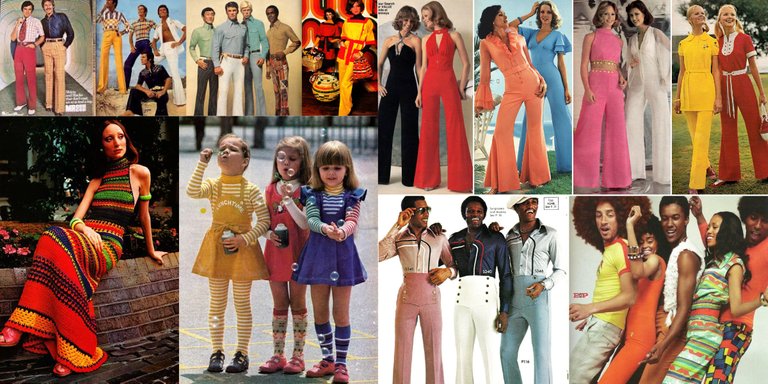
We already covered some of the quite extravagant fashion that emerged from pop music and youth culture. Usually pop idols mainly influence teenagers' fashion. However, the colorful fashion of the 1970s found its way to almost all generations, white and colored alike.
Car colors in the seventies
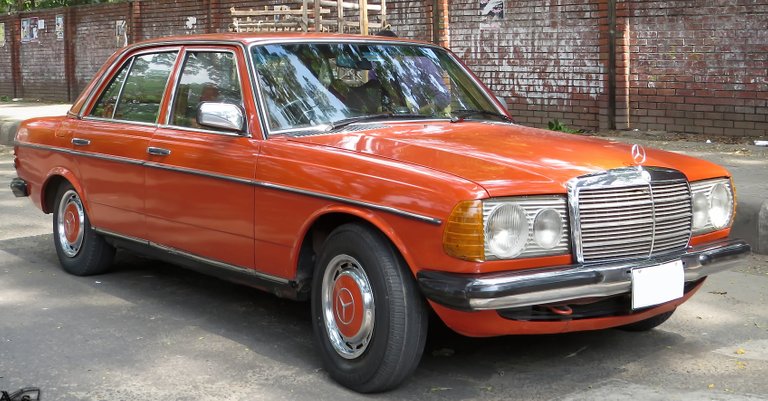
In the early days, cars were available in any color, so long as it was black (quote H. Ford). This already had developed quite a bit, when in the fifties pastel colored limousines came available.
Ten, fifteen years later, the roles were completely reversed, and it was virtually impossible to buy a gray or black car. Meanwhile Hippies had started to repaint dull VW vans in bright colors, which would become happy flower power symbols.
But also a legacy brand like Mercedes Benz started producing models in popular colors off factory for business people. And even Lada from Russia, available in Tennis Court green...
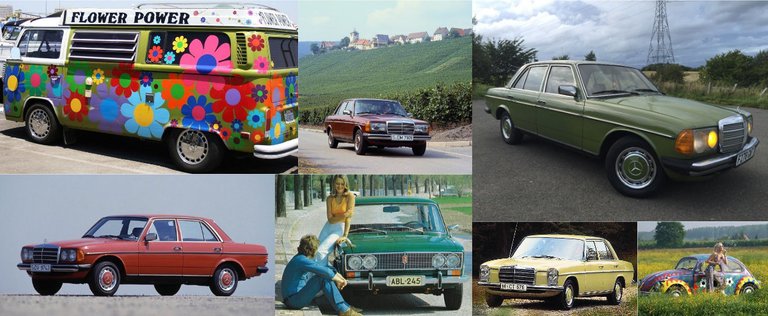
Interior design & kitchens
Last but not least those colors invaded our homes as well! In my opinion, the 1970s wallpapers are truly epic. Wild patterns combined with even wilder colors. Who actually needed LSD?

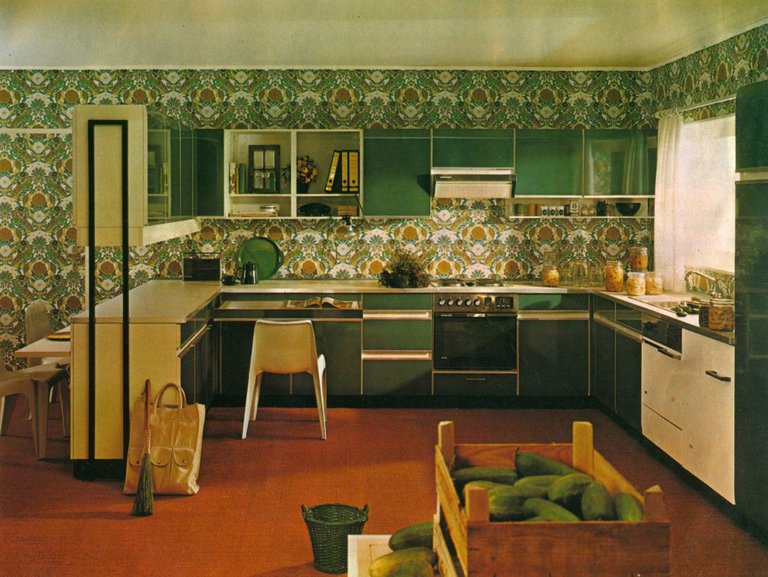
Not only the walls, but almost everything was restyled. Tableware, pottery, furniture, electronics etc. etc. etc.

